Alumnae Discuss Climate Change, Inaugural Eunice Newton Foote Climate Talk
4/23/2021
Suzanne Romero Dewey
Eunice Newton Foote, one of Emma’s earliest alumnae (Troy Female Seminary, which later became Emma Willard School), exemplifies the school’s mission to serve and shape the world. She attended the school in 1836-38 and credited her time in Troy as influential to her later work. Her 1856 paper “Circumstances Affecting the Heat of the Sun’s Rays” was the first to detail how increased levels of carbon dioxide make the earth warmer. Her discovery about greenhouse gases greatly contributed to modern climate science. In honor of Earth Day, Emma Willard School invited four alumnae to share their knowledge on climate science in the inaugural Eunice Newton Foote Climate Talk held on April 21, 2021.
Moderated by Science Instructor and Sara Lee Schupf Family Chair in Curriculum Excellence And Innovation Megan Labbate, the panel discussion featured insights from the four alumnae about their education and thoughts centering on their fields of expertise. Toward the end of the evening, a robust question and answer session with other alumnae, students, faculty, and staff gave the audience much to ponder. One message that was reinforced was how important it is to work together and to use all of the available tools to help stem climate change’s dangerous progression.
Carol Collier '69, who served as senior advisor and government liaison at the Academy of Natural Sciences and is the former executive director of the Delaware River Basin Commission reflected, "What I valued the most from Emma [was] the ability to get involved with so many things. I was in theatre. I was in sports. I was also allowed to make movies […] but two special things [stand out]—attention to the individual […] and also I was given the space and direction to really find self-assurance and initiative. I have to say I’ve been to really good schools but I consider Emma my best education.” One of Carol’s projects she worked on was the Delaware River Watershed Initiative (DRWI), a cross-cutting collaboration working to conserve and restore the waters that supply drinking water to 14 million people in New York, New Jersey, Pennsylvania, and Delaware. Carol reminded the audience that evidence of climate change is not just in distant lands but as close as our drinking water. One of the most detrimental parts of climate change impacts our water supply. She shared it is crucial to look at the entire system; in the case of the Delaware Basin, you have to look at what happens upstream. “We know that in past droughts, there is not enough water to go around.[…] I think of climate change as an overlay to all the other problems that we have—floods, droughts, population and development, underserved communities. Climate change just exacerbates all of this and it extends the extremes.”
Robin Bell, PhD '76 agrees about the quality of her education stating, “At Emma, I learned to love science.[…] It was that intellectual space […] that ability to explore and not feel encumbered.[…] At Emma, I was given the space, that I don’t think I would have gotten anywhere else, that science is just beautiful and amazing!” Robin went on to Middlebury and then worked at US Geological Survey at Woods Hole before conducting her PhD research. She opened the door to measuring gravity from aircraft that has fostered decades of scientific advances. She joined the Earth Institute faculty in 2011 and is now actively working to help design the Columbia Climate School. When considering what we need to do about climate change, she states, “It’s really important to take individual action and to push every lever we can.[…] It’s not like there’s one thing we can do, we have to do everything—individually, through our institutions, and through our government.”
Dr. Karen Holl '85, a third-generation Emma alumna and professor of environmental studies at the University of California, Santa Cruz, has conducted research and taught courses on ecological restoration for over 20 years. She is the author of the book Primer of Ecological Restoration. She also praised the education she received at Emma by thanking “my English teachers at Emma who taught me how to write well. Even though I am a scientist, good writing skills are incredibly important. The fact that I can write well for both scientific and general audiences has been critical to my success as a scientist and my ability to communicate about environmental issues to general audiences.” She also addressed the idea that planting trees is the solution to climate change. “Planting trees and restoring our ecosystems more broadly is one of the hopeful spots...it is not a silver bullet solution.[…] It is one tool in the toolbox. We need to be using all the tools.” Karen, like the other panelists, sees coordinated and intense action as a solution and commented, “The most important thing we need to do right now is rapidly and drastically reducing our greenhouse gas emissions.[…] We need to keep the existing forest standing. Our real priority is to protect the forest.[…] We really need to plan to maintain those ecosystems over time.”
Emma Cheuse '94, a staff attorney in the Washington, DC, office of Earthjustice, focuses on the need to protect clean air and the right to a healthy community. Emma admits that “it took me a while to find my path. While at Emma, I would never have imagined becoming a lawyer, much less an environmental lawyer.[…] Friends and the community helped me find my causes [and] to learn how to persuade and find my voice.” Emma advocates for democracy and community activism by using the law as a tool to protect the right to a healthy environment. She passionately related that “Today, in America, many communities don’t have clear air or clear water[…]. For far too long, the voices of communities have been ignored.[…] This tracks with structural racism and the inequity that our country has been grappling with since its founding.[…] Fixing this problem of environmental injustice requires recognizing the inner connection between environmental projection and the goals of civil rights and anti-racism goals. Earthjustice is working in solidarity.[...] to change this and has created a national climate platform.[...] I hope you all will find your own place to do what you can to help grow the movement, as a scientist, a lawyer, an advocate, a voter. We need more Emma alumnae to stand with us.”
The Emma community is grateful to our alumnae for adding their voices to an important dialogue. Moderator Megan Labbate summed up the evening well by stating, “From the early discovery of Eunice Newton Foote to current alumnae to our students, climate change is being addressed by our community. The panel discussion was a great way to highlight the amazing work that our alumnae do in living out the mission at Emma Willard—serving and shaping the world. It also provided inspiration to our students as the paths forward in the realm of environmental action are numerous. All of the panelists are experts in their respective fields and with their guidance, our current and future students may choose to follow in their footsteps. I left the discussion inspired that our community at Emma Willard will be at the forefront of developing solutions to address the climate crisis.”
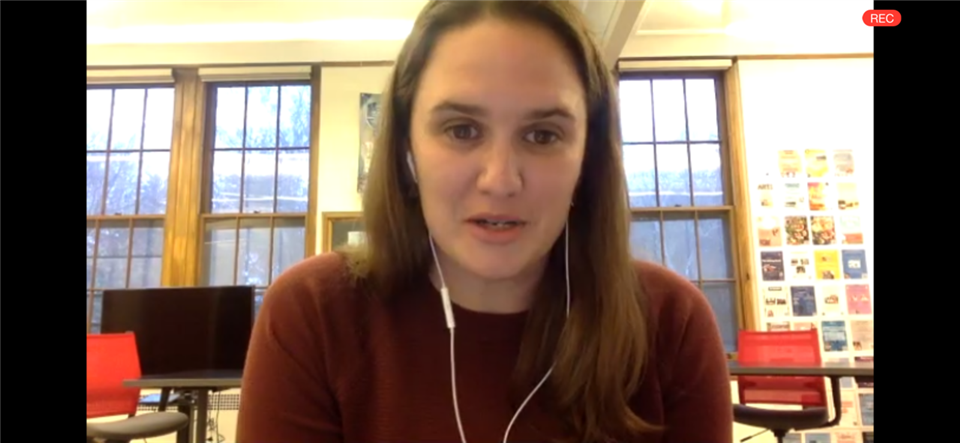
Science Instructor and Sara Lee Schupf Family Chair in Curriculum Excellence And Innovation Megan Labbate moderating Zoom panel discussion
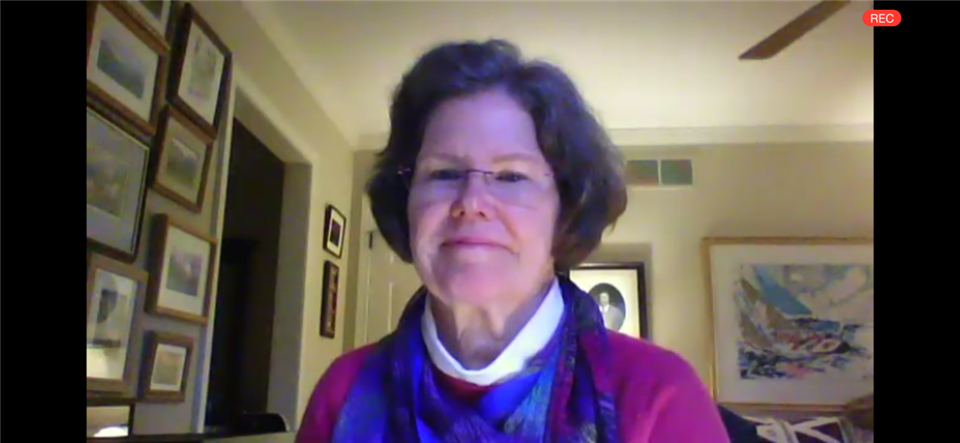
Carol Collier '69 Fellow of the American Institute of Certified Planners and Fellow in the American Water Resources Association
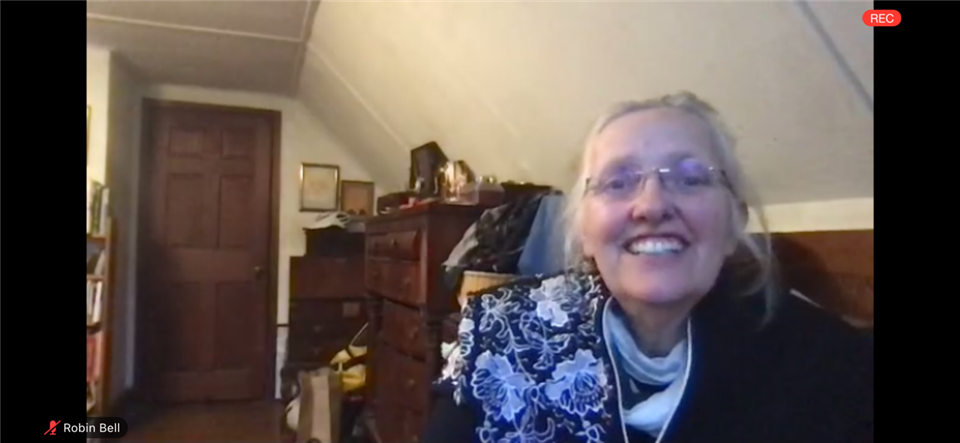
Robin Bell, PhD '76 at The Earth Institute, Columbia University
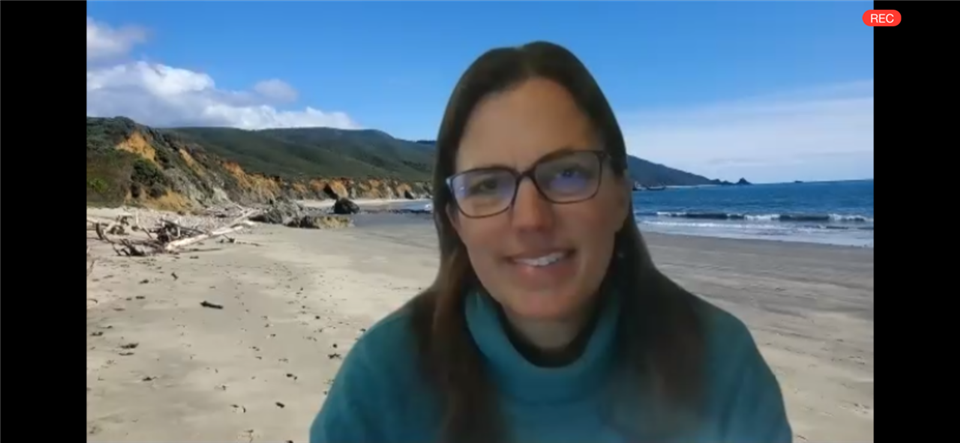
Karen Holl, PhD '85, professor of environmental studies at the UC, Santa Cruz
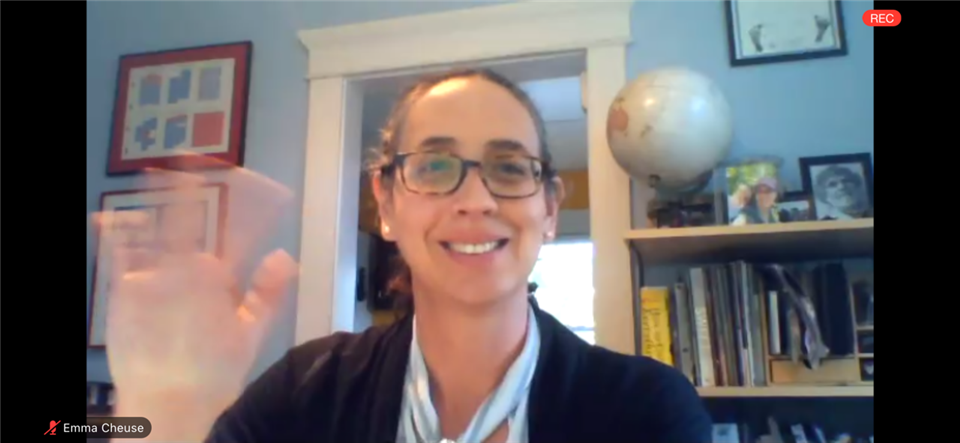
Emma Cheuse '94, staff attorney at Earthjustice














